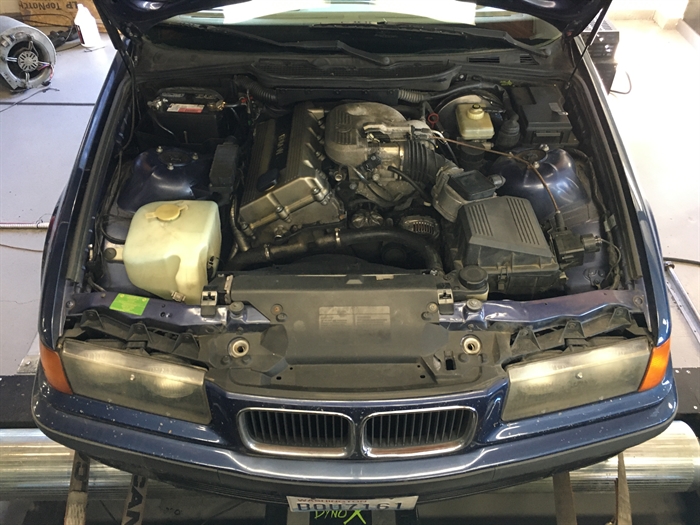BMW 318ti: Performance Specs and Qualities Explained
BMW 318ti: Performance Specs and Qualities Explained
Blog Article
Important Factors To Consider for Picking the most effective Engine for Your Demands
In the world of choosing the ideal engine to fulfill your demands, a number of critical elements demand careful consideration to make sure optimal performance and effectiveness. From the nuanced equilibrium in between power and efficiency to the often-overlooked elements of maintenance and service needs, each element plays a crucial function in figuring out the most ideal engine for your particular requirements. As the complexity of engine technologies continues to develop, critical one of the most suitable option necessitates a deep understanding of the interaction in between different factors to consider. By exploring the complex web of aspects that underpin this decision-making procedure, a more clear course arises in the direction of picking an engine that not just meets yet exceeds your assumptions.
Power and Performance
When examining engines for optimum performance, it is vital to focus on both power outcome and efficiency. Efficiency refers to how well the engine transforms fuel right into usable power. By very carefully examining both power and efficiency, you can choose an engine that provides ideal efficiency and fulfills your needs effectively.
Gas Effectiveness and Economy
In the world of engine selection, the consideration of gas performance and economic climate holds paramount relevance. Fuel performance describes the engine's capability to convert fuel right into power with minimal waste, directly influencing operating costs and environmental sustainability. bmw 318ti. When picking an engine, evaluating its fuel economic climate is critical to figure out long-lasting financial savings and environmental impact. Engines with higher gas efficiency not just decrease fuel costs but likewise lower carbon emissions, adding to a greener procedure.

Compatibility and Application
Thinking about the fuel performance and economic climate of an engine, the next essential aspect to address is its compatibility and application within certain functional contexts. Compatibility describes just how well the engine incorporates with the total system or tools it powers. It entails factors such as physical measurements, placing alternatives, electrical interfaces, and control systems. Guaranteeing compatibility is necessary to avoid problems such as getting too hot, vibrations, or power inequalities (bmw 318ti).
Different engines are developed for specific objectives, whether it be industrial machinery, marine vessels, vehicles, or power generators. Comprehending the desired application enables for the selection of an engine that can deliver the required power result, torque, and functional qualities.
Maintenance and Solution Requirements
Maintenance and service needs play a critical duty in guaranteeing the long life and optimal performance of an engine. Normal upkeep is crucial to prevent malfunctions, expand the life expectancy of the engine, and keep its performance. When choosing an engine, it is necessary to think about the maker's advised maintenance schedule and the accessibility of solution centers or qualified service technicians.
Elements such as the regularity of oil adjustments, filter replacements, and total evaluations can significantly affect the engine's performance. Some engines may need more frequent maintenance based on their layout and usage, while others may have longer intervals between upkeep checks. It is crucial to follow these solution demands to avoid expensive fixings and unforeseen downtime.

Expense and Budget Plan Considerations
Budget restraints usually play a significant function in the decision-making process when picking an engine for a particular application. When taking into consideration the price and spending plan effects of choosing an engine, it is important to evaluate not just the initial purchase price yet additionally the long-lasting expenses connected with upkeep, fuel usage, and prospective upgrades or repair work. It is essential to strike an equilibrium between the upfront go now cost of the engine and its total lifecycle costs to guarantee that the picked my latest blog post engine stays economically sustainable throughout its operational life expectancy.
Aspects such as gas dependability, toughness, and performance can straight influence the complete cost of ownership of an engine. While a more pricey engine may have greater upfront expenses, it could possibly result in reduced upkeep and fuel costs in time, therefore supplying much better worth in the future. In addition, considering the availability and price of extra components, in addition to the convenience of upkeep and service, can help prevent unexpected economic stress in the future. By thoroughly evaluating these cost and spending plan factors to consider, you can make an informed decision that aligns with your economic restraints and operational needs.
Conclusion

Fuel effectiveness refers to the engine's capability to transform fuel right into power with marginal waste, directly affecting operating prices and ecological sustainability.Factors influencing fuel efficiency include engine layout, burning performance, and general performance optimization. Additionally, selecting the ideal fuel kind and grade as recommended by the engine producer can further boost efficiency and prolong engine lifespan.
Engines with great service features and readily offered parts can lower maintenance prices and decrease the time the engine is out of procedure - bmw 318ti. It is critical to strike a balance in between the in advance price of the engine and its total lifecycle costs to make sure that the chosen engine stays monetarily sustainable throughout its operational life expectancy
Report this page